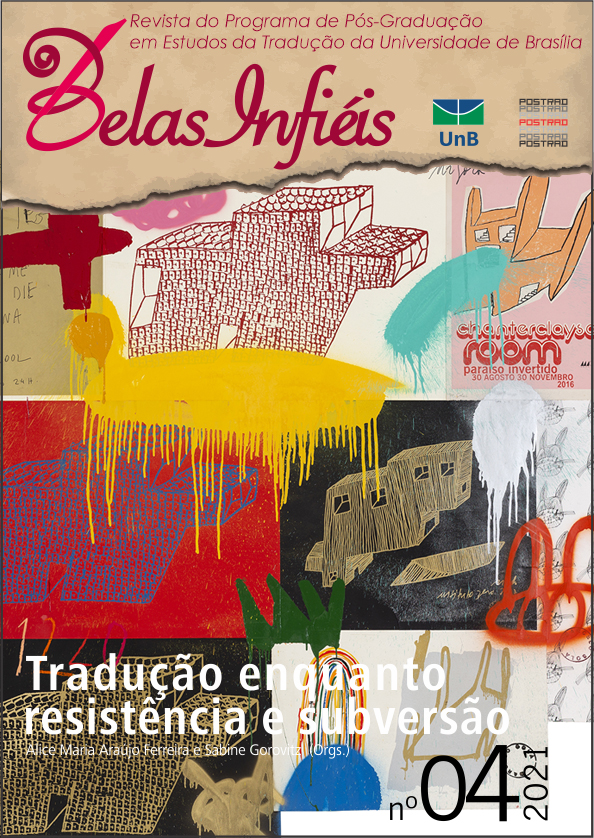Resenha de Mediating Emergencies and Conflicts: Frontline Translating and Interpreting
DOI:
https://doi.org/10.26512/belasinfieis.v10.n4.2021.36280Palabras clave:
Emergências. Catástrofes. Tradutores. Intérpretes. Treinamento e formação.Resumen
Esta resenha aborda a obra intitulada Mediating Emergencies and Conflicts: Frontline Translating and Interpreting [Mediando Emergências e Conflitos: Tradução e Interpretação na linha de frente], organizada por Federico M. Federici (University College London), no Reino Unido. Diversos países em diferentes partes do globo terrestre enfrentam emergências, catástrofes, desastres naturais ou provocados pelo homem. Esses fenômenos causam uma série de demandas, entre elas, tradutores, intérpretes e mediadores linguísticos de diversos idiomas. O livro explora o papel desses profissionais com base em experiências profissionais e também resultados de pesquisas, colocando em evidências países como Turquia, Egito, Afeganistão, Irlanda, Espanha, Bélgica, entre outros.
Descargas
Citas
Federici, F. M. (Ed.). (2016). Mediating Emergencies and Conflicts: Frontline Translating and Interpreting (Palgrave Studies in Translating and Interpreting). Palgrave Macmillan.
Descargas
Publicado
Cómo citar
Número
Sección
Licencia
Derechos de autor 2021 CC BY

Esta obra está bajo una licencia internacional Creative Commons Atribución 4.0.
Copyright Statement
Given the public access to this journal, the texts are free to use but requires the recognition of the original authorship and initial publication in this journal to be properly stated.
The journal allows the use of works published for non-commercial purposes, including the right to submit the work to publicly accessible databases. Published contributions are the sole and exclusive responsibility of the author(s).
- When submitting papers to be evaluated by the Belas Infiéis journal, the author(s):
- Declare that the contents of the contributions are original and of their original creation, being entirely responsible for their content if there is an objection by third parties.
- Claim to be aware that they should not commit academic plagiarism.
- Declare that the manuscript has not been published, completely or partially, in Portuguese or another language. If it is a translation it should be submitted to the Translated Articles section.
- Declare that the manuscript is not being evaluated by other journals.
- Declare that the manuscript was not submitted to another journal simultaneously.
- Commit(s) to inform the journal of any kind of error or inaccuracy in their contribution (published, in evaluation or in editing) and to collaborate with the editors to make due corrections of the article (when in evaluation or editing) or erratum/retraction (after publication).
- Declare that there is no conflict of interest regarding the published work.
- Authorize its release if it is accepted for publication without any kind of monetary compensation.
- Agree to assign non-exclusive rights to publication to the magazine, remaining free to make their contribution available in other media as long as the publication of the first version in Belas Infiéis magazine is mentioned. They also authorize Belas Infiéis to assign their texts for reproduction in content indexers, virtual libraries and similar platforms.
- Maintain copyright and grant the journal the right of first publication, the work being licensed under theCreative Commons Attribution License.
- Is/Are allowed and encouraged to publish and distribute their work online after the editorial process, which may increase the impact and citation of the published work.
- Authorize the editorial team to make textual adjustments and to adapt the article to the publication rules, when necessary.



















